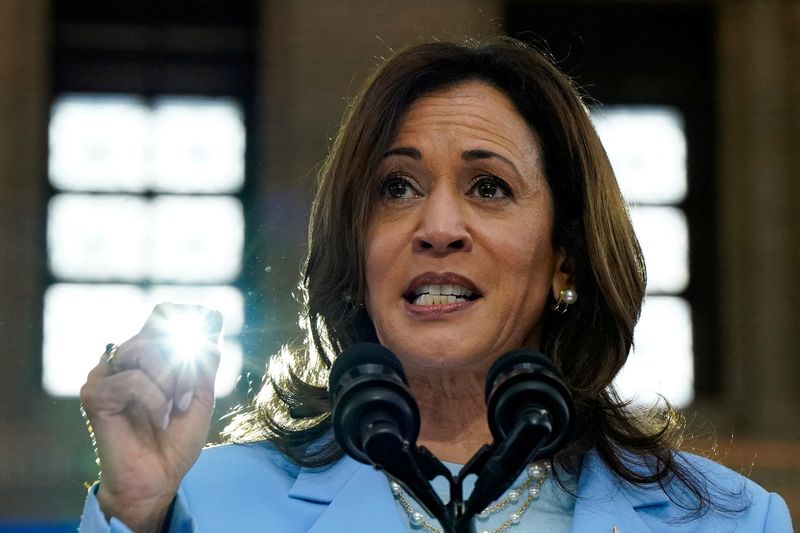(Reuters) -Millions of Americans would see medical debts vanish from their credit reports under pending regulations unveiled Tuesday, Vice President Kamala Harris announced.
The proposed regulations, unveiled by the U.S. Consumer Financial Protection Bureau, come as Joe Biden's administration works to tout its economic policies ahead of November's elections.
The move would remove up to $49 billion in medical debts from the credit reports of 15 million Americans, according to the bureau. Americans often face medical debt because services are not entirely covered by either private insurance or government health plans.
State and local governments are also using coronavirus stimulus funds to eliminate $7 billion in medical debts held by nearly 3 million Americans, according to the vice president's office
"Medical debt makes it more difficult for millions of Americans to be approved for a car loan, a home loan or small business loans, all of which in turn makes it more difficult to just get by," Harris told reporters.
"No one should be denied access to economic opportunity simply because they experienced a medical emergency."
The proposal would result in an additional 22,000 home loan approvals per year once effective, according to Harris.
As home ownership rates rise, racial minority groups are left behind, according to the National Association of Realtors. Black and Asian buyers are most likely to be rejected for a mortgage loan based on their debt-to-income ratio, NAR data showed.
The proposal faces likely push-back from industry and Republican-led states, who have challenged Biden administration economic and environmental policies. A year ago, the U.S. Supreme Court blocked the administration's plans to cancel $430 billion in student loan debts, upending a key Biden campaign promise.
Consumer Financial Protection Bureau Director Rohit Chopra is due to present the agency's semiannual report to lawmakers later this week.
Patrick McHenry, the Republican chair of the House Financial Services Committee, which will hear Chopra's testimony on Thursday, decried Tuesday's announcement, saying the policy would raise costs and reduce the availability of credit.
"The CFPB's regulatory overreach will harm the very consumers the agency was created to protect," McHenry said in a statement.

Officials at the agency have said that medical debt is a poor predictor of whether borrowers are likely to repay debts owed through credit cards, mortgages and other loans.
A senior agency official said the proposal would be subject to a period of public comment through mid-August and would likely be finalized early in 2025.